Last-Minute NYC Holiday Gift Guide 🎁
We’ve created a holiday gift guide with presents for the intrepid New Yorker that should arrive just in time—

Discover where you can find the ruins of a rural, 19th-century Irish cottage amongst the skyscrapers of NYC!

Steps away from the Hudson River, the jagged stone walls of a 19th-century Irish cottage stand in the shadow of Lower Manhattan skyscrapers. Set amongst a quarter of an acre of native Irish plants, this reconstructed ruin hails from County Mayo, Ireland. It was relocated to Battery Park City in 2002 to serve as the centerpiece of the Irish Hunger Memorial designed by internationally renowned sculptor and artist Brian Tolle. The memorial stands to raise awareness of the Great Famine that took place in Ireland between 1845 and 1852 and current hunger crises around the world.
Join us for a visit to the Irish Hunger Memorial on an Irish History tour of NYC with Irish podcaster and county Armagh native Ashley Cathaláin! Untapped New York Members get 50% off tickets.
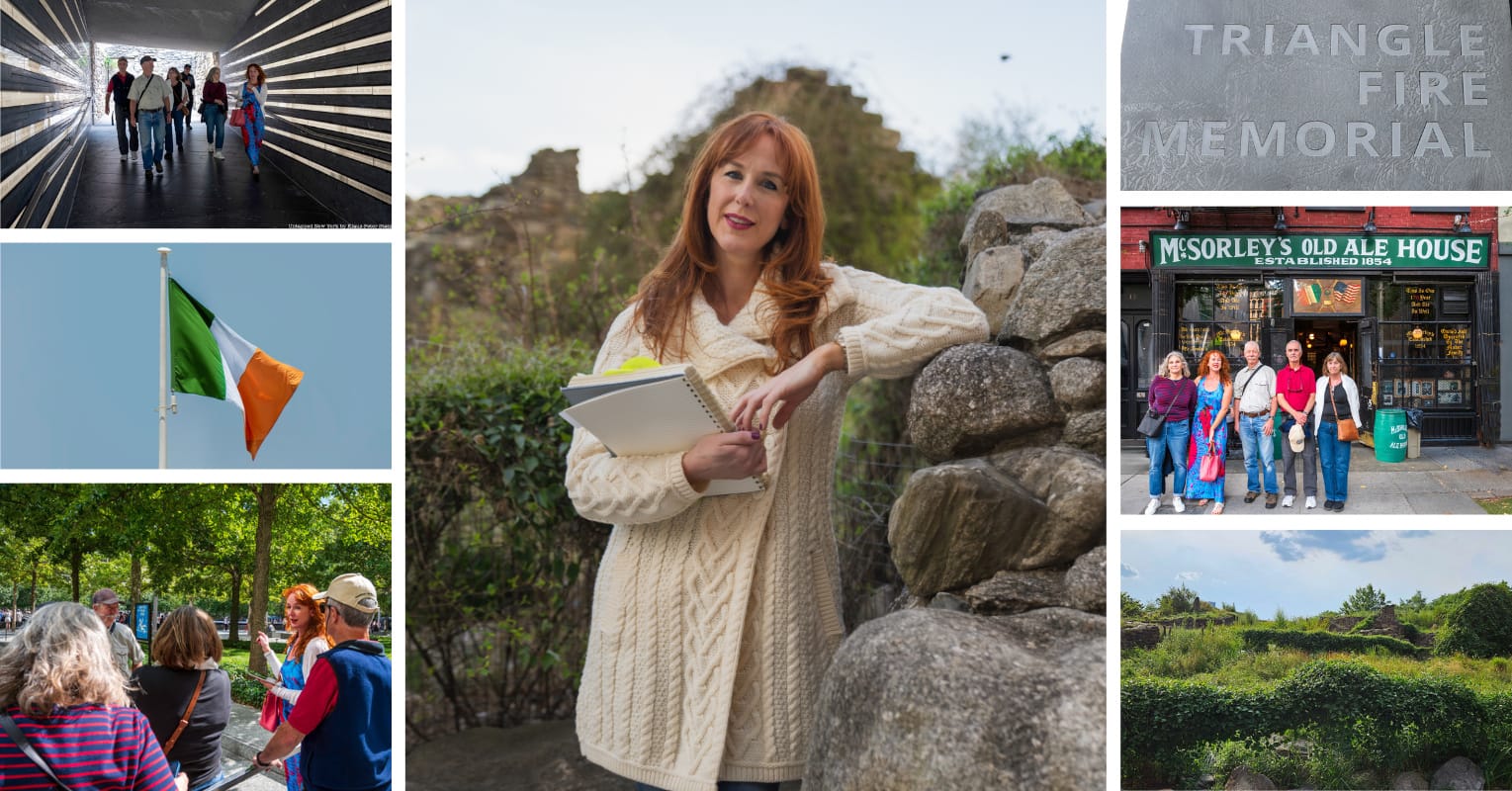
From the shores of Cobh to the streets of Manhattan, see how Irish immigrants have shaped the city!
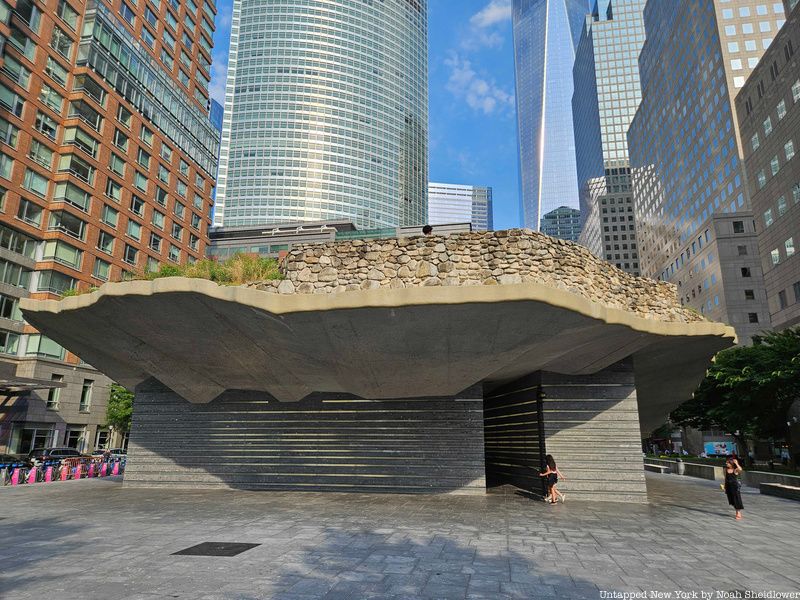
Without even knowing it, visitors to the memorial step through hundreds of millions of years of Irish history, before even entering. Dark limestone from the ancient Irish seabed paves the ground approaching the memorial. If you look closely, you’ll notice small white fossils embedded in the stone. Layers of stone and glass make up the base of the memorial.

Shadows cast on illuminated bands of glass reveal text from primary sources and tell the story of the Great Famine. Headlines from contemporary reports and newspaper editorials, government documents, quotes, poetry, and more make up two miles of this text. These words, along with music and narration played over speakers, carry visitors through the entrance and up a sloping passageway to the top of the memorial.
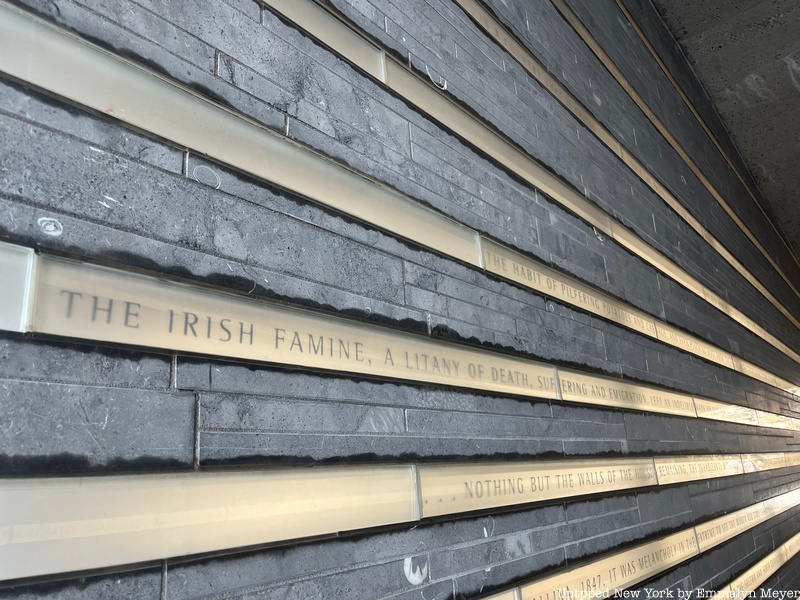
Emerging from the passageway, you’ll find yourself within the stone ruin atop the cantilevered concrete platform. Artist Brian Tolle explained that this cantilevered piece is meant to illustrate “the weight of history bearing down on the visitor as they approach.” A serendipitous moment led Tolle to this specific cottage.
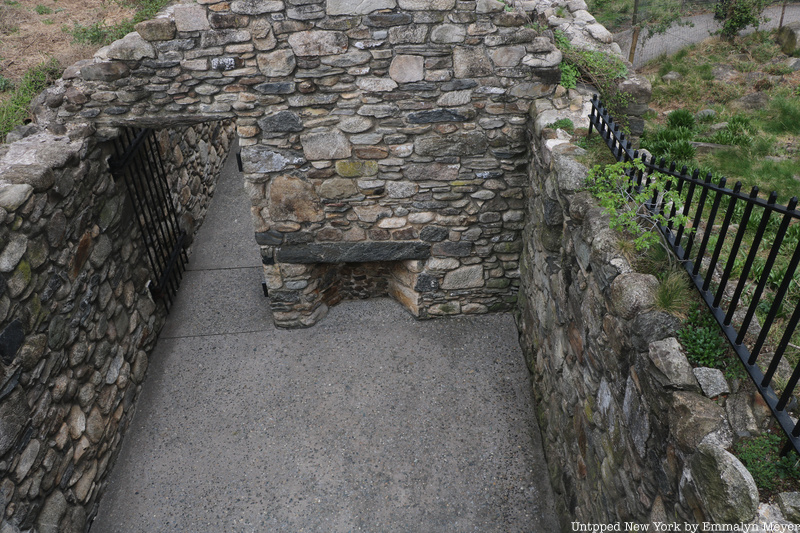

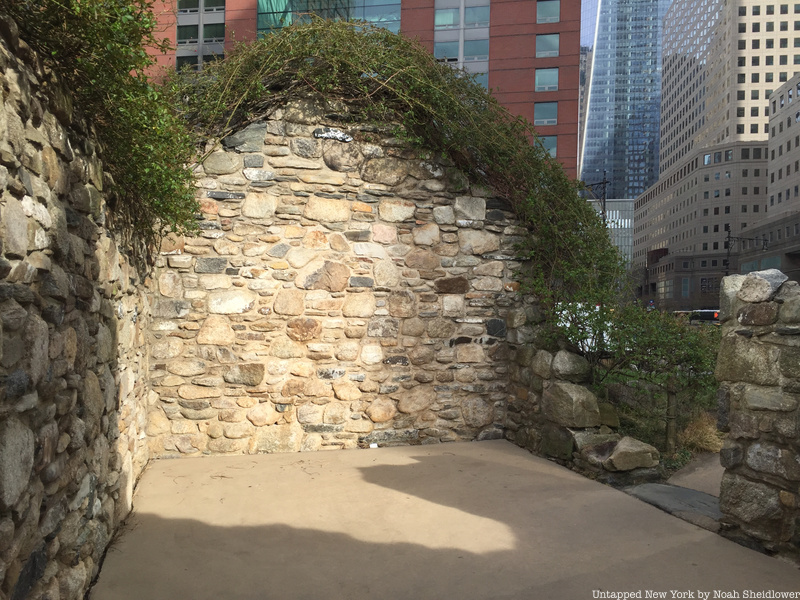
Tolle’s partner, Brian Clyne, is Irish. One day while looking through old family photographs, Tolle spotted this cottage in the background of a photo of Clyne’s grandmother. A call to Clyne’s relatives back in Ireland revealed that the cottage still stood. The Slack family, owners of the cottage at the time, donated the cottage for use in the memorial. Workers carefully deconstructed the structure stone by stone and sent the pieces on a journey to New York. Turns out, the cottage was located in the parish where the first starvation death was reported during the famine times.
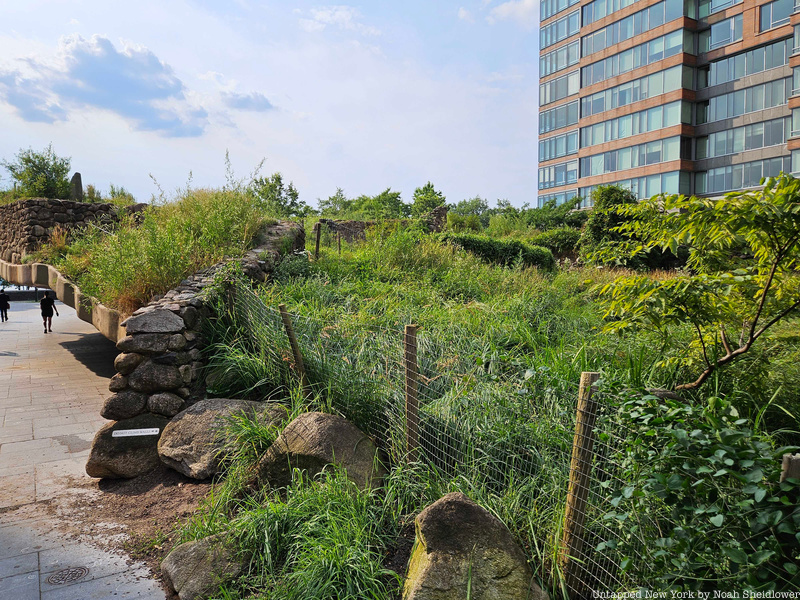
Over fifty native Irish plants surround the cottage and its winding path. The rugged landscape represents a fallow potato field as it would appear once farming ceased. Thirty-two stones from the 32 counties of Ireland sit along the walking path. Each is engraved with the county it came from.

At the apex of the cantilevered platform, 25 feet above the ground, visitors can look out at a stunning view of the Statue of Liberty and Ellis Island, the immigration station where Irish immigrants would have arrived in New York nearly 200 years ago.
Subscribe to our newsletter